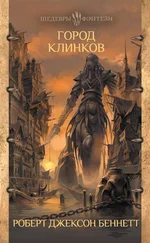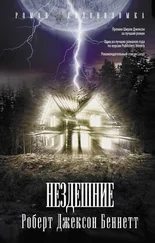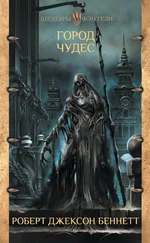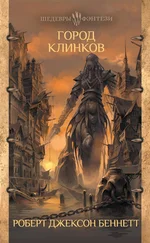She sat there, trying to process this.
She hesitated, then walked into the bathing room. It was all marble and metal with a huge porcelain tub, and it had mirrors — something she’d seen only rarely in her life. She looked around for a place to hide Clef in case someone walked in, and settled on a cabinet.
said Clef as she set him down.
Sancia shut the cabinet.
Alone in the bathing room, Sancia stripped down. Then she looked at herself in the mirrors.
Her arms and thighs and shoulders, strong and rippling and wiry. Her belly and breasts, covered in rashes and bites and filth.
She turned around, and saw her back. She took a sharp breath in.
She’d thought they’d have gone away by now, or shrunk, but they seemed just as huge as ever, the bright, shiny strips of scars that ran from her shoulders down to her buttocks. She stared at them, transfixed. It had been so long since she’d last seen them, for mirrors were rare in the Commons.
They’d told stories of slaves that had bravely borne countless whippings, stoically taking lash after lash. But the instant she’d been whipped, Sancia had realized it’d all been a lie. The second the lash had touched her, all her pride and fury and hope had been dashed away. It was surprising, how fragile your idea of yourself was.
Sancia stood in the tub, soaked a cloth in hot water, and scrubbed herself clean. As she did, she told herself she was not a slave anymore. She told herself she was free, and strong, that she’d been alone for years, and she’d be alone again one day, and she would, as always, survive. Because surviving was what Sancia did best. And as she scrubbed at her filthy, scarred skin, she tried to tell herself that the drops on her cheeks were just water from the spigots, and nothing more.
II CAMPO

And so great Crasedes came to the city of Apamea, on the edge of the Sea of Ephios, and though no text survives of what he said to the kings of this city, it is clear from secondhand sources that he brought his usual message: of co-option, of integration into their empire, and urgings of surrender. By now word had spread of the hierophants’ arrival in the region, and many were fearful — but the kings and wealthy landowners of Apamea refused him, and rudely rebuffed great Crasedes.
Crasedes did not respond with any wrath, as some had feared. Instead he simply walked to the city square, where he sat in the dust and began to build a cairn out of gray stones.
The legend goes that Crasedes built the cairn from noon to sunset, and the height of the construct grew to be extraordinary. Exact accounts differ regarding the height — some say a hundred feet tall, others hundreds of feet. However, every version of the story omits two critical parts: if the cairn of stones was extraordinarily tall, how did Crasedes, an average man in height, manage to keep stacking the stones on the top? It was said Crasedes could make many things float, and could fly himself — but this is not noted in this story. So — how?
And secondly, where did all these stones come from?
Some sources suggest that Crasedes had assistance in the construction of the cairn. These renditions claim that before he began, Crasedes took out a small metal box, and opened it — though the box appeared to be empty to onlookers. However, the stories say that the people of Apamea then saw footprints forming in the dust around the cairn, footprints far larger than a person’s. These versions would suggest that Crasedes had held some kind of invisible sprite or entity within the box, which he released to aid him. Yet such tales hew close to some of the more fantastical stories regarding the hierophants — fables of Crasedes making the stars dance with his magic wand, and so on — and thus must be treated with skepticism.
Regardless of the particulars, Crasedes began to build the cairn, and did not stop. And as night fell, and as they watched this curious display, the people of Apamea suddenly grew fearful, and left.
In the morning, when they returned to the city square, Crasedes was seated in the dust, still waiting patiently, and the cairn was gone — as were, the people later discovered, all the kings and wealthy landowners of Apamea, along with their families, old and young, and all their livestock, and the very buildings they’d lived and worked in. All had vanished overnight without a sound — perhaps taken to the place that the cairn had also gone.
The purpose of the cairn remains unknown, as does the final destination of those who resisted Crasedes in Apamea, who are still lost to history. Apamea, of course, no longer resisted Crasedes, and submitted to the rule of the hierophants — though it, like all of the lands of the Occidental Empire, was eventually totally destroyed. As is well documented, it is unknown if a civil war was the source of this conflict, or if, perhaps, the hierophants battled against another, greater force.
Such an idea troubles me — and yet, it must be considered.
— GIANCAMO ADORNI, DEPUTY HYPATUS OF THE HOUSE OF GUARCO, COLLECTED TALES OF THE OCCIDENTAL EMPIRE
Orso ground his teeth, rubbed his forehead, and sighed. “I swear,” he murmured, “if I hear one more insipid shitting word…”
“Quiet,” whispered Ofelia Dandolo.
Orso rested his head on the table before him. He was talented at putting abstract concepts together. That was essentially his entire profession: he wrote essays and arguments that convinced reality to do some new and interesting things.
So if there was one thing he truly despised — one thing that absolutely, positively drove him mad — it was when someone just could not get to the scrumming point. To observe someone fumbling around with words and ideas like a schoolboy trying to navigate a woman’s under-robes was akin to swallowing shards of glass.
“The point is thusly,” said the speaker — a Morsini deputy hypatus, some overdressed asshole whose name Orso couldn’t be bothered to remember. “The point is — is it possible to develop criteria by which we can measure, analyze, and establish the possibility that the Commons blackouts were a natural occurrence — by which I mean some by-product of a storm or meteorological fluctuation in the atmosphere — as opposed to being anthropological —by which I mean, human-caused?”
“Little shit probably just learned the word,” growled Orso. Ofelia Dandolo glanced at him. Orso cleared his throat as if the comment had been a cough.
This was now hour four of this Tevanni council meeting on the blackouts. To his surprise, they’d somehow managed to drag both Eferizo Michiel and Torino Morsini out of their campo cradles. You almost never saw either house head at all, let alone in the same place. Eferizo was trying to sit up and look nobly concerned, whereas Torino was nakedly emanating boredom. Ofelia, as always, comported herself quite well, in Orso’s opinion — but he could see even her stamina was flagging.
Читать дальше
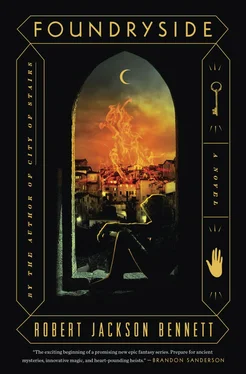


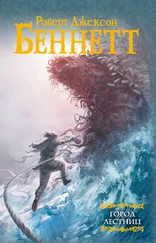


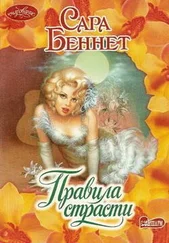

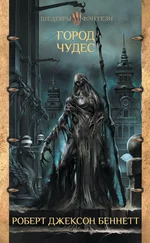
![Роберт Беннет - Город чудес [litres]](/books/405553/robert-bennet-gorod-chudes-litres-thumb.webp)
